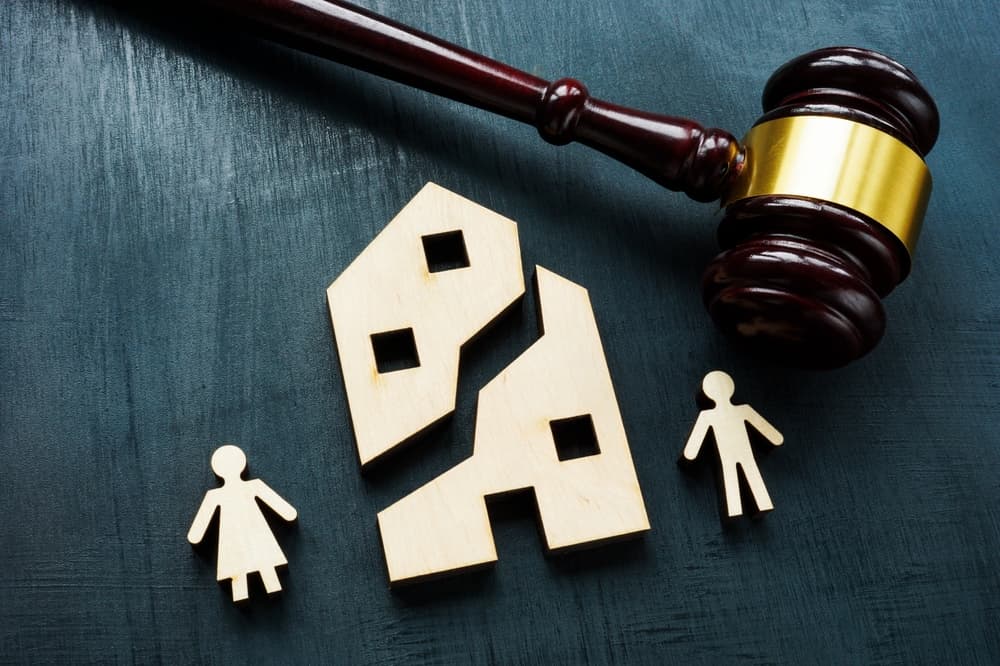Property division during a divorce can be challenging and highly emotional. When a marriage ends, the couple must navigate the division of their assets and debts, which can be challenging and sometimes contentious.
Factors such as the length of the marriage, each spouse’s contribution to the acquisition of assets, and each party’s financial needs must be considered. Additionally, classifying assets as separate or marital property further complicates matters.
To ensure a fair and equitable property division during a divorce, seek the guidance of experienced divorce attorneys. Contact one today for sound legal advice and representation in property division matters.
BTL Family Law is
Here to Help
Understanding Marital Property and Separate Property
Before discussing the specifics of property division during a divorce, it is important to understand the distinction between marital property and separate property. Marital property refers to assets and debts acquired by either spouse during the marriage.

On the other hand, separate property includes assets and debts owned by either spouse before the marriage or acquired through inheritance or gifts during the marriage. However, it is important to note that commingling separate property with marital property can complicate matters.
Equitable Distribution vs. Equal Division
Property division approaches may vary depending on the jurisdiction. Some states follow the principle of equitable distribution, meaning property is divided based on fairness and justice.
While this does not necessarily mean an equal division of assets, it aims to distribute property in a manner that considers various factors. Other states follow the principle of equal division, where assets are split equally between the spouses.
The Importance of Hiring a Divorce Lawyer
Property division during a divorce can quickly become overwhelming without the guidance of a well-versed family law attorney. Here are some reasons why it is in your best interest to hire an experienced attorney:
Knowledge of State Laws
Every state has its own laws governing the division of property during a divorce. A family law attorney will have a deep understanding of these laws and how they apply to your specific case. They will explain your rights and will always work diligently to protect your interests.
Objectivity in Decision-Making
Divorce is an emotional process, and it can be difficult to make objective decisions when it comes to dividing assets and debts. A family law attorney can provide an objective perspective and guide you through the process with a clear focus on achieving a fair and equal or equitable outcome.
Negotiation and Mediation Skills
Property division can often be resolved through negotiation or mediation rather than litigation. An experienced family law attorney can effectively negotiate on your behalf, ensuring that your interests are represented and you reach a mutually agreeable settlement.
Protecting Your Financial Future
The division of assets and debts during a divorce can have long-term financial and other implications.
A skilled family law attorney will consider factors such as your financial needs, future earning potential, and the overall fairness of the division. They will work to protect your financial future and secure the best possible outcome for you.
Steps in Property Division
While every divorce is unique, there are general steps that are typically followed in the property division process. Here is an overview of these steps:
Identification and Valuation of Assets
The first step involves identifying and valuing all marital assets and debts. This includes real estate, vehicles, bank accounts, investments, retirement accounts, and any other assets of value. You need accurate valuations to ensure an equal or equitable division.

Classification of Assets
Once you identify and value the assets, you must classify them as separate or marital property. Cases with commingled assets or disputed classification make this a complex process. A seasoned family law attorney will manage this process and advocate for your best interests.
Division of Assets
Once the assets have been classified, the next step is determining how they will be divided. This can be done through negotiation, mediation, or litigation. The goal is to achieve a fair and equal or equitable division considering each spouse’s contributions and financial needs post-divorce.
Consideration of Tax Implications
Property division during a divorce can have tax implications. You will want to consider these implications and work with a skilled divorce lawyer who can guide you in minimizing tax liabilities and maximizing financial benefits.
Enforcement of Property Division Orders
Once the property division has been finalized, a lawyer can ensure an enforceable, agreed-upon division. A divorce lawyer will guide you through obtaining and enforcing property division orders to protect your rights and ensure compliance.
What if One Spouse is Hiding Assets?
During a divorce, you need to have a thorough understanding of your spouse’s financial situation. Unfortunately, some individuals hide assets to keep them. If you suspect that your spouse hides assets, now is the time to take immediate action and seek the guidance of an experienced attorney.
Retaining an attorney who focuses on divorce and property division can be a game-changer. They have the experience and knowledge to uncover hidden assets and ensure a fair and equal or equitable distribution.
Your attorney can employ various tools and strategies to locate hidden assets, such as conducting a thorough financial investigation, evaluating bank statements, tax returns, and business records, and leveraging the help of forensic accountants. They will work tirelessly to maximize your financial outcome and protect your rights throughout the process.
Contact a Seasoned Family Law Attorney Today for Sound Legal Advice
Property division during a divorce is a detailed process that requires careful attention to detail and a deep understanding of family law. To protect your rights and interests, seek the guidance of experienced family law attorneys. A seasoned family law attorney will provide the advice and support you need during this challenging time.
Call one today to schedule a consultation. Let them advocate for you and secure a fair and equal or equitable division of property during your divorce.
BTL Family Law is
Here to Help
